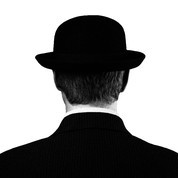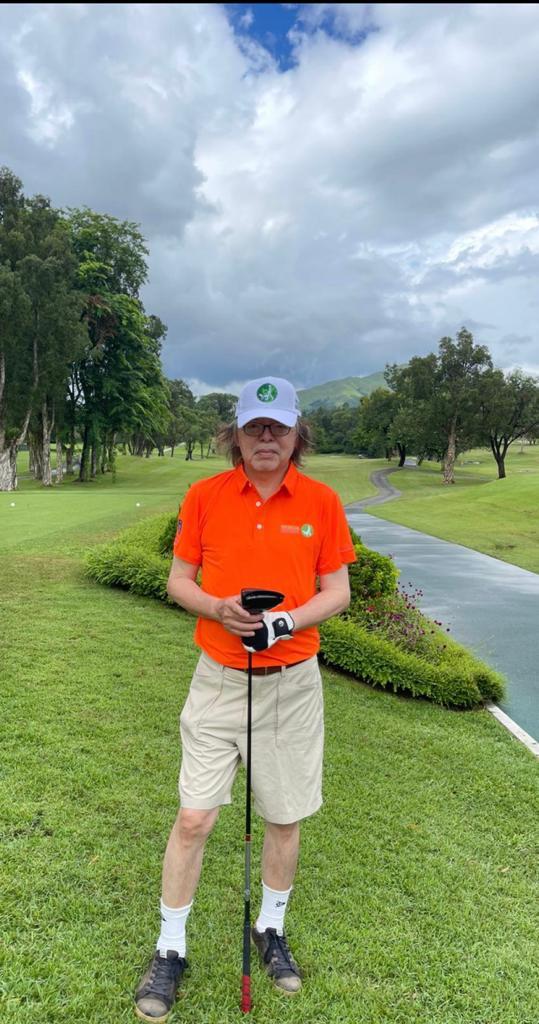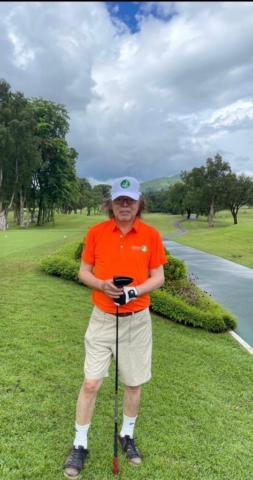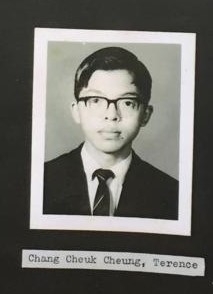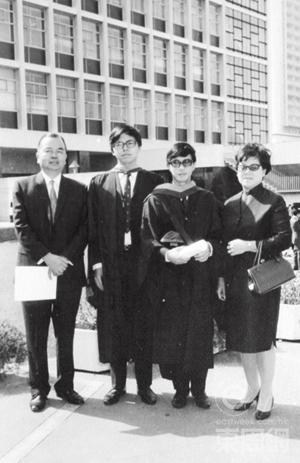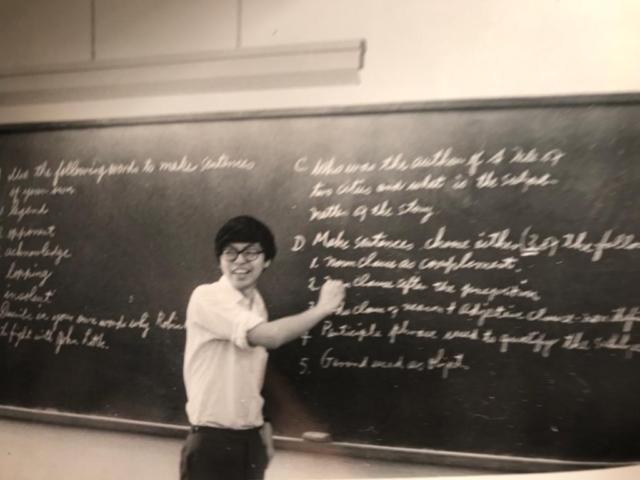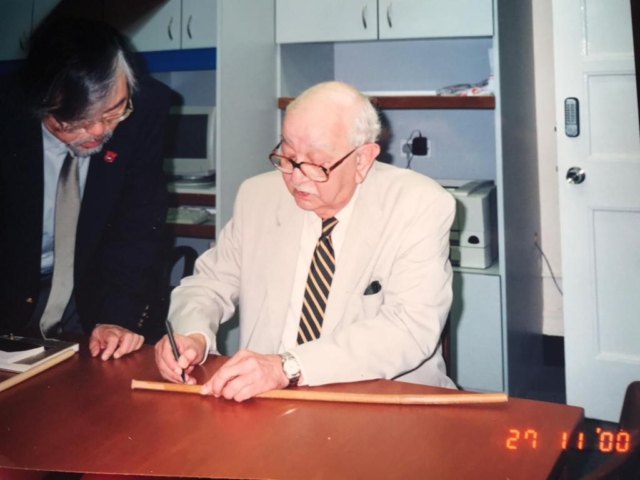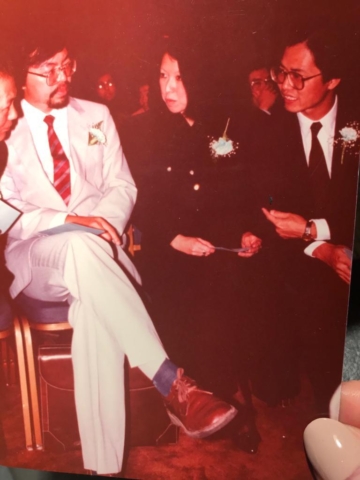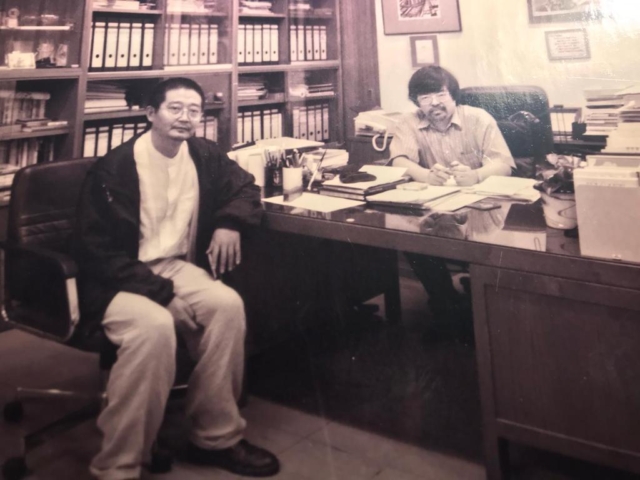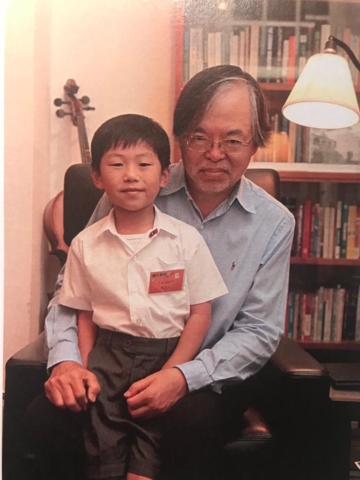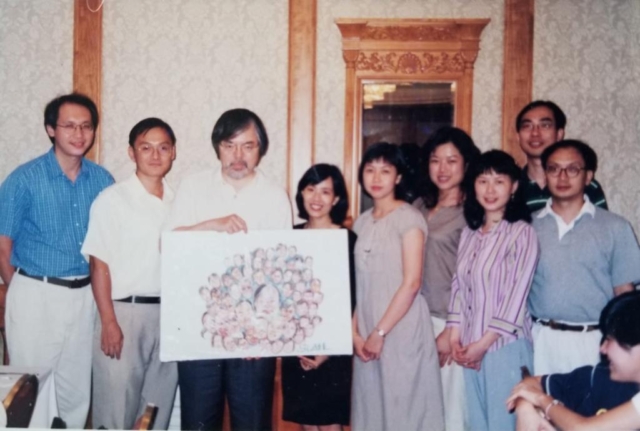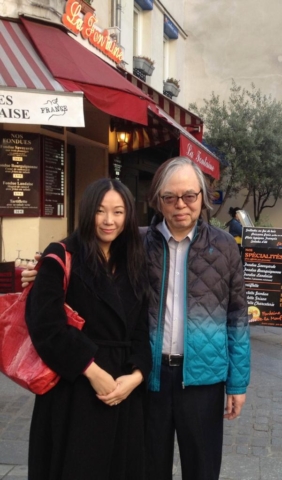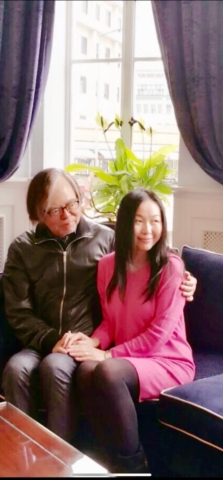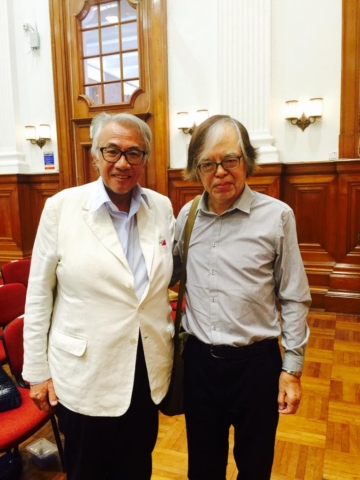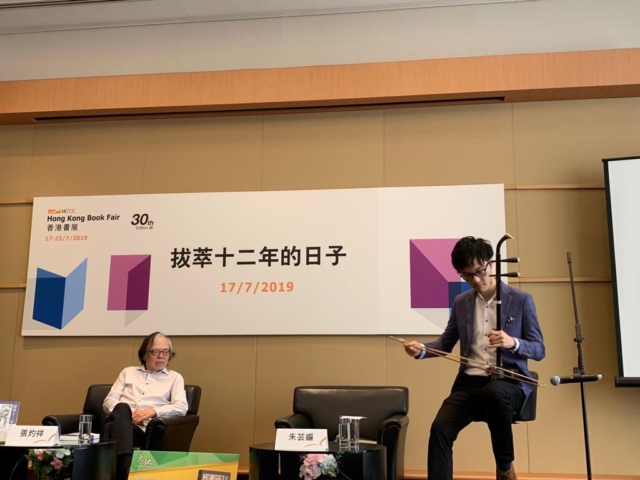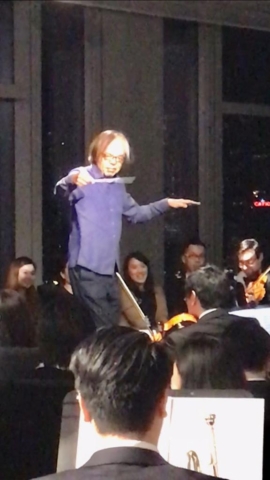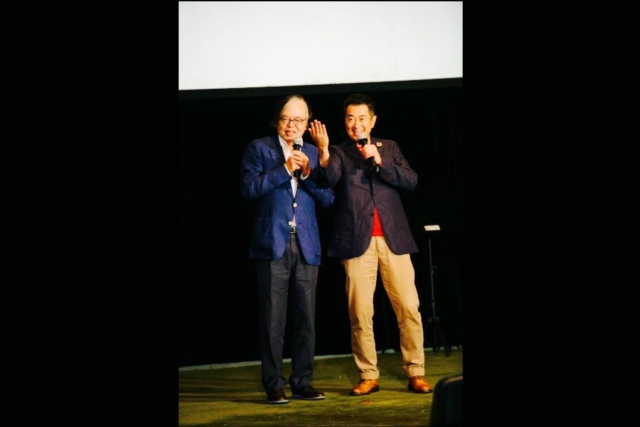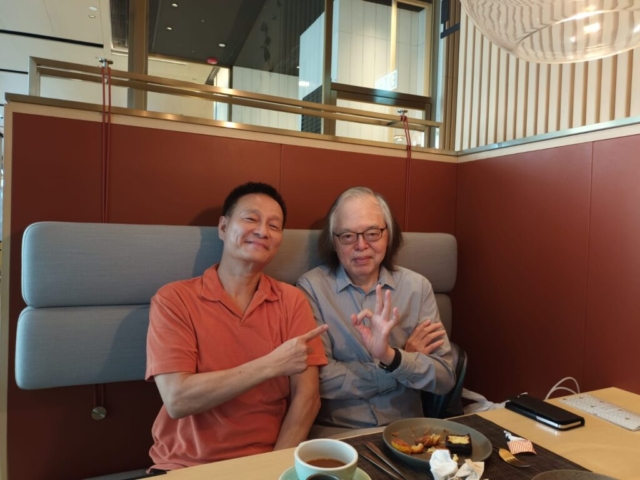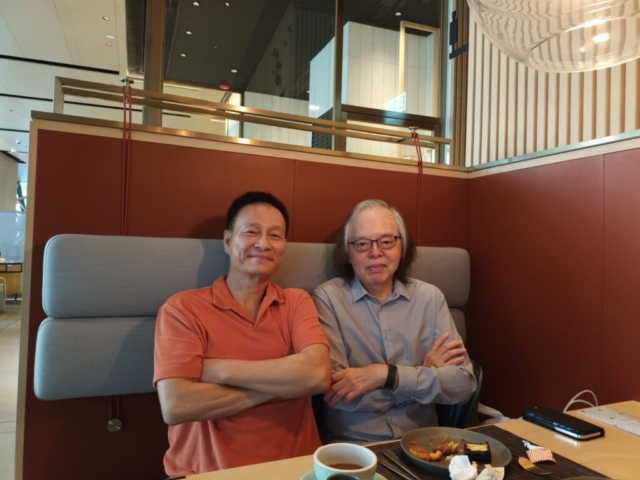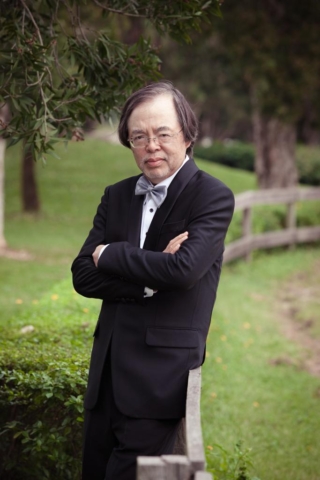We get impatient and short-sighted when we compare and compete with other people. Hong Kong is always the winner of the most populous city in the world. The average living space per capita in Hong Kong is less than 1.3 meter for a staggering population of 7 million. Everywhere is jammed with heads. We are forced to compare and compete. An overnight success is the dream of most people here. Immediate monetary results give us instant gratification. For most people, art and culture area are only a remote goal of self-actualization, especially in terms of spiritual enrichment. They will not produce quick material pleasure.
The famous cultural writer Mr Terence CC Chang(張灼祥), former headmaster of the distinguished Diocesan Boys’ School, gave a low moan, “Aww, a man in Hong Kong is often guided more by money considerations than by ideals, emotions and mental well-being. He compares, competes and fancies being as rich as a tycoon. The common situation is that people have no heart or they don’t follow their hearts. Art and culture are not valued because they are intangible. They are usually not treated as part of life and regarded as a non-essential feature of life, reserved for the few, and worst of all, the most time-wasting activity.”
Mr Chang is a very respected writer, radio culture program host and school headmaster in Hong Kong. I would love to learn how he could do many things at the same time. He smiled, “Well, mission and passion! But those were the decomposed days and right now, I am enjoying my easy retirement.” Mr Chang had been the principle of 4 schools including Po Leung Kuk Tang Yuk Tien College, Jockey Club Ti-I College and Diocesan Boys’ School.
Born in the Chinese Mainland, Mr Chang later migrated to Hong Kong as his father, also a school headmaster, wanted to establish new ties here. Mr Chang studied well and went to The University of Hong Kong in the 60s and after that, abroad to the USA. He recollected, “I have fond memories from my childhood in a small village of Sheung Shui where many film shoots were taken. I watched actors acting and storytelling by directors. That was the best of culture in the countryside.”
I asked Mr Chang, “As a culturist, how did you promote culture in school?” He gently explained, “2 key words: ‘cultural opportunities’, apart from the usual ways of just disseminating knowledge included in a syllabus. The extracurricular activities must provide opportunities for a young boy or girl to experience and build connections with the spiritual beauties such as music, drama, painting, design and literary art. Such exposure is important as kids will be inspired and therefore aspire. They will gradually emulate who they are surrounded by and what they ultimately decide to become!”
Mr Chang paused for a while, “But it is not good enough to ‘know’. After seeing and listening, kids must learn to appreciate! Art appreciation is an important process. It helps us bring our own knowledge, experience and taste to the ability of feeling things which are invisible between the art works and us.”
I was eager to know, “Education, even at university level, is common in Hong Kong but why are many people still culturally unmotivated?” He pondered, “Hong Kong is a material and speculative city. Confidence often comes from money. Many people here want to grab money and go. There is nothing deep down inside them. I think when more and more people realize the satisfaction from a nice concert or a book is greater than a Rolex watch or a Hermès handbag, things can be different. I am positive! More and more young ones today care about work- life balance and I think the next trend should be a money-and-soul balance! Not making a lot of money should never be a shame or disgrace. Knowing nothing about history, literature, philosophy, film, music or art in future should be!”
I asked, “Hong Kong now has a government bureau to promote culture. Any advice for them?” Mr Chang crossed his fingers, “Our government used to and is still very practical and material. All must be counted by numbers and for them a number simply means success. For example, we want to tell others how many events, activities, venues and audience seats will increase per year. This can be a red herring or the wrong tree. It may show that the government does not fully understand what culture is all about and what it is meant for. The real embarkment should be the formulation and promotion of a set of social norms and human values that can be promoted to transform people here into civilised and appreciative beings. The real success must be that we can feel, on an everyday basis, that a lot of people in the city will change their coarse behaviour, and not the cosmetic phenomenon that Hong Kong is a place of cultural happenings. The latter is often money-driven and will not be sustainable. The real cultural person need not go out to attend events and yet, say, by being alone or staying at home, he can be very cultural. Culture in Hong Kong must be social education.”
I slurred, “Obviously, you are not a great fan of the new ambitions like Hong Kong being a cultural economy or art business centre?” Mr Chang grinned, “I am not against it. The side benefits will surely help a community become a better place. I am simply worried that such means will become an end. A real cultural society will not in any event be born if art and culture are used as tradable goods.”
I insisted on digging out more, “Master, for you, what is an ideal cultural society?” He looked at me wittily, “Ha ha, by good education at home, at school and in the community, our people will enjoy, apart from making and spending money, reading a book, going to an arthouse cinema, listening to some quiet music, talking with friends about the true meaning of life. In other words, they will always have a heart which is seeking the spiritual emancipation of happiness!”
After the interview, I could not forget what Mr Chang told me, “Maurice, you don’t have to let me check what you will write because for me, writers are to be respected and trusted.” A gentleman of real culture is so different.
Culture is not a bed of artificial roses. It is a beautifully craggy mountain where the wild river runs.
This article can also be found at the following sites:





